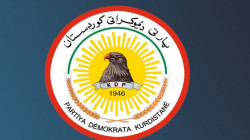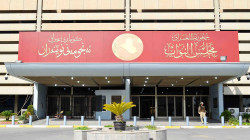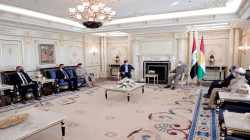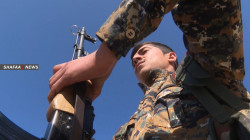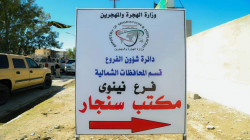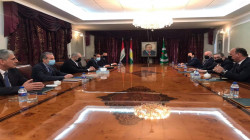K.D.P. armed with a new strategy to run for Iraqi elections
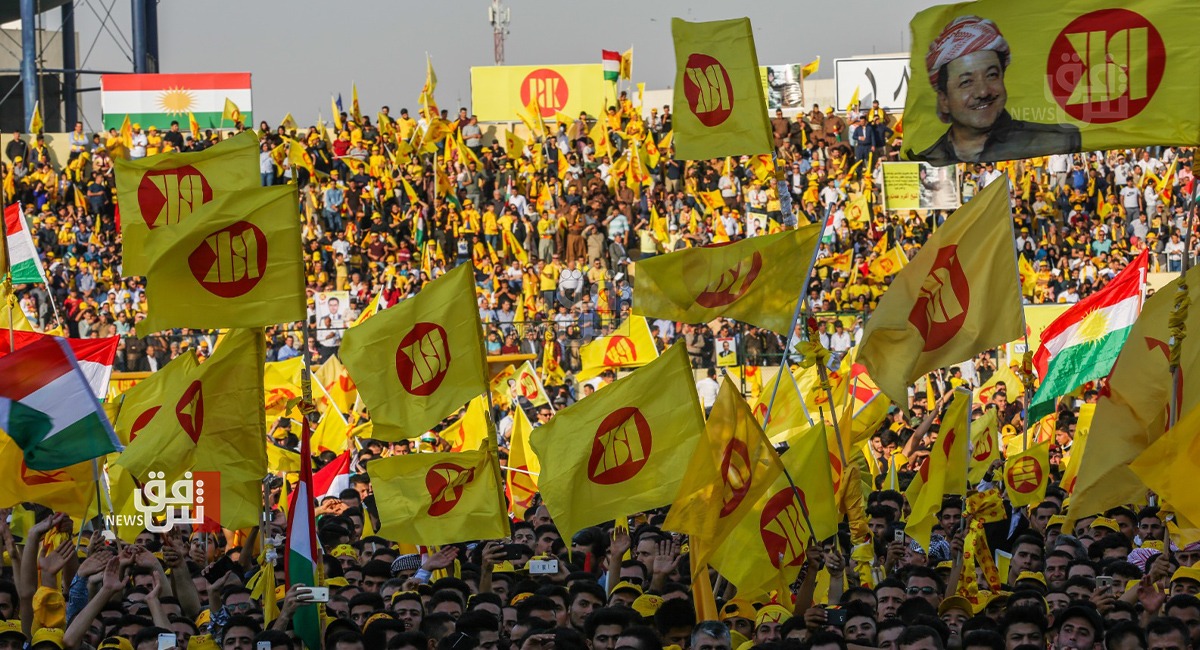
Shafaq News / Observers may agree on a striking paradox in the October 10 elections that the Kurdistan Democratic Party (K.D.P.) may be the most prominent political force running for the elections, more reassured than other forces due to its popular support base at the ballot box, however, without excessive exaggeration that runs counter to the rationality of the party's political performance.
Kurdistan's great transition, led by Masoud Barzani's party, and through the President of the Region, Nechirvan Barzani, on the economic, political, and security levels over the past three decades is not a secret. Perhaps, one of that transition's most important recent features is the great sacrifices in defending the Region from ISIS, and secondly, insisting, with patience and perseverance, to meet with Baghdad on the points of contention.
Observers must have noticed how the Kurdish discourse in the post-ISIS years was characterized by patriotism and seeking to address differences with the federal government, similar to what happened last year on the specific financial allocations to the Kurdistan Region, which, due to confusion on the part of Baghdad, led to tensions in the Kurdish street, especially in al-Sulaymaniyah. However, the patience exercised by the Kurdish leadership and its intensified communication with the Iraqi leadership, especially with Prime Minister Mustafa al-Kadhimi, proved that the united work and the "round out the corners" policy opens the doors to solutions, which is exactly what happened.
The rationality that characterizes Erbil's rule is not limited to dealing with Baghdad. It also opens the doors with Tehran, Ankara, London, Riyadh, Abu Dhabi, Paris, Berlin, Washington, and others, and Kurdistan, as Nechirvan Barzani said during his recent visit to Britain, "sits on the front line of the conflict between freedom and authoritarianism, hope and darkness. Radical and terrorist groups threaten us and our way of life. But we remain a safe haven and beacon of tolerance."
For many other reasons, the K.D.P., which has a long history of struggle and sacrifices since its establishment in 1946, is running for the elections while remaining loyal to the principles of democracy, human rights, social justice, individual freedom, and the right to self-determination.
Nevertheless, for many, the October 10 elections could mark a new shift in the course of Iraq and Kurdistan. In this context, the Kurdistan Democratic Party is seeking to participate in the election race with discretion and accuracy, with 51 candidates spread across 31 constituencies, adopting a new strategy in the hope of winning more seats than in the 2018 elections (26 seats).
"the K.D.P. hopes to achieve more seats than in the previous elections because it started working on it early with a new strategy that will ensure achieving the desired goal, or, in the worst estimates, maintain the same number of seats in the previous session," a well-informed source told Shafaq News agency.
"the K.D.P. has intensified its activities outside the Region's borders, particularly in Nineveh, where it has named 14 candidates in seven out of eight constituencies in the governorate, which indicates the importance of it to the party," the source said, adding that the party could have six or seven seats in Nineveh.
The party has drawn up a well-thought-out plan to deal with the most important details related to elections in the Region and beyond, the source pointed, noting that it had "named the lowest number of candidates in the areas of importance or party strongholds to ensure victory without losing any vote."
For example, in Akre city, a stronghold of the K.D.P. with four constituencies, the party named three strong candidates, along with a new candidate in Kirkuk. Moreover, it named its strongest candidate, Shakhwan Abdullah, to compete in the strongest constituency and a female candidate for the second constituency.
"The majority of the party's female candidates have been divided into constituencies that are described as weak, given that women do not achieve high voting rates," the source added.
When asked about the party's weight centers, the source said, "The K.D.P. believes that the important areas are concentrated in Duhok, Erbil, and Nineveh," adding that he believed Duhok would register ten seats, Nineveh six or seven seats, Erbil six or eight seats, and Kirkuk three seats. He said that al-Sulaymaniyah would meet the worst expectations, with two seats in the central governorates.
"The presidential candidate will certainly be one of the party's priorities, which has prepared three candidates, including Hoshyar Zebari, as a non-controversial figure who has an accepted status on all sides. However, It depends on the elections' results and alliances, as well as the consensus of the Kurdish parties," continued the source.
As for the possibility of Prime Minister Mustafa al-Kadhimi's second term, the source noted, "It is very possible to renew al-Kadhimi's mandate. He has worked hard to avoid problems with the Kurdistan Region, which is usually the focus of the budgetary allocations. The prime minister has sent the Region's allocation without conflict. Also, al-Kadhimi has strong ties with regional leaders."
Khusraw Kuran, a leader in the K.D.P. and the party's election file officer, told Shafaq News agency that the party had named 51 candidates in 31 constituencies divided into 11 governorates, including about 12 women candidates, in line with the women quota set by the Iraqi constitution, "The party has candidates in Karbala, Kut, Baghdad, Diyala, Al-Anbar, Saladin, Kirkuk, Nineveh, as well as the Region's governorates.
"The majority of the candidates are prominent leaders known to the Kurdish street," Kuran said, adding, "The party's candidates are mostly well-known figures, half of them are former representatives and prominent tribal figures, as well as clerics and technocrats."
He also confirmed that the K.D.P. is trying to maintain the number of seats it won in the previous elections (26 seats), but also hopes to achieve more.
While Kuran preferred not to reveal the identity of the party's presidential candidate, he said that future alliances with parliamentary forces and blocs "depend on the results of the elections and therefore it is too early to go into it."
